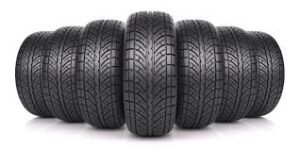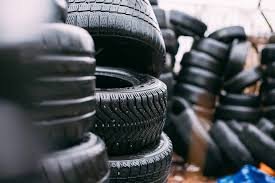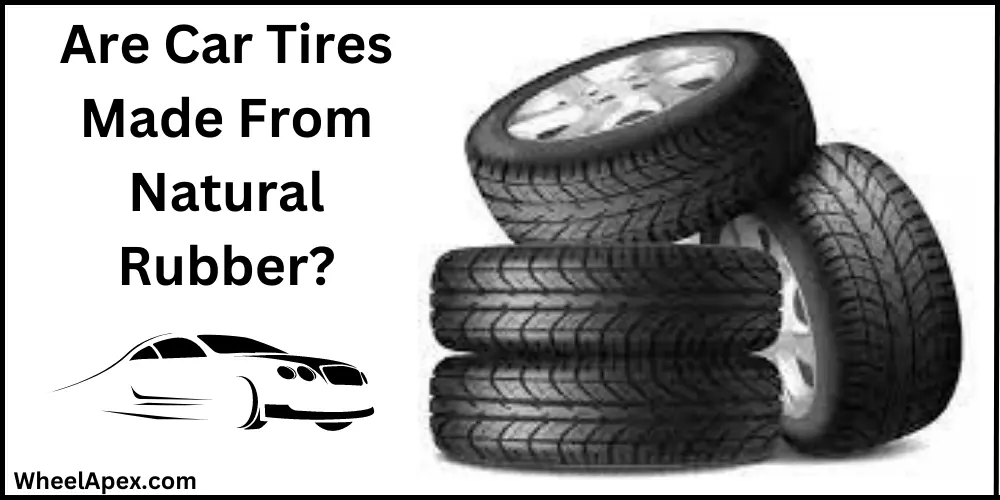While manufactured elastic has become progressively common, normal elastic assumes a critical part in tire creation. The specific structure of a tire can fluctuate contingent on variables, for example, the expected use, street conditions, and environment. Tire makers cautiously select the suitable mix of normal and engineered elastic to accomplish the ideal equilibrium of execution, sturdiness, and well-being.
Are Car Tires Made From Natural Rubber? In this article, we will dig further into the captivating universe of vehicle tire fabricating and investigate the purposes for the proceeded utilization of normal elastic in tire creation. By understanding the materials that make up our tires, we can acquire a more noteworthy appreciation for the design and innovation engaged in making the fundamental parts that keep us continuing on the streets.
Are Car Tires Made From Natural Rubber?
Vehicle tires are a fundamental part of vehicles that give footing, solidness, and security out and about. They go through a meticulous assembling process, using different materials to make a sturdy and dependable item. Among these materials, normal elastic assumes a huge part because of its outstanding properties. We will investigate the utilization of regular elastic in vehicle tires, its advantages, and elective materials utilized in tire production.
Yes, car tires are primarily made from natural rubber, sourced from rubber trees, and blended with synthetic materials for enhanced durability and performance.
The Job of A Normal Elastic
Normal elastic, derived from the plastic sap of elastic trees, has been a staple material in tire creation for a long time. Its exceptional properties make it an ideal decision for the assembling of vehicle tires size. The essential part of regular elastic is a polymer known as polyisoprene, which gives great versatility, adaptability, and flexibility. These characteristics empower tires to keep in touch with the street surface, bringing about improved grasp, foothold, and control.
Advantages of Regular Elastic in Vehicle Tires

- Foothold and Execution:
The flexibility of regular elastic permits tires to adjust to abnormalities out and about, expanding the contact region and further developing a foothold. This is vital for safe driving, particularly in wet or elusive circumstances.
- Sturdiness:
Regular elastic shows outstanding protection from mileage, guaranteeing the life span of vehicle tires. Its capacity to endure changing temperatures and street conditions adds to expanded solidness, decreasing the requirement for incessant tire substitutions.
- Eco-friendliness:
The adaptability of normal elastic lessens moving obstruction, which is the power expected to keep the tires rolling. Lower moving opposition means further developed eco-friendliness, empowering vehicles to consume less energy and decline fossil fuel byproducts.
- Sound Decrease:
The versatility of regular elastic likewise assumes a part in lessening outside sound. It retains vibrations and effects, bringing about a calmer and more agreeable ride for the tenants of the vehicle.
Elective Tire Materials

While normal elastic has been the conventional decision for tire fabricating, mechanical progressions have prompted the advancement of elective materials to enhance or supplant it. Engineered rubbers, for example, styrene-butadiene elastic (SBR) and polybutadiene elastic (BR), are usually utilized in tire creation. These engineered materials offer comparable properties to normal elastic and can be mixed with it to accomplish explicit execution qualities.
Besides, current tire fabricating consolidates different parts, including building up materials like steel, polyester, and nylon, which improve strength and soundness. Also, silica and carbon dark are utilized as fillers to further develop track wear and give a better hold.
FAQs
Are Any Tires Made of Natural Rubber?
Many tires are made with normal elastic filled with air instead of rubber. Regular elastic, obtained from elastic trees, is frequently mixed with manufactured elastic for further developed solidness and execution. This mix offers an equilibrium of footing, flexibility, and life span, making it a typical decision for tire fabricating, particularly in traveler and business vehicle applications.
Is Natural Rubber Used in Car Tires?
Normal elastic is a significant part of vehicle tires. It gives flexibility, strength, and fantastic holdout and about. While manufactured elastic mixes are likewise utilized, regular elastic remaining parts are an essential decision because of their unrivaled exhibition in guaranteeing security, footing, and by and large tire strength for vehicles.
How Much of A Car Tire is Natural Rubber?
Roughly 25-30% of a vehicle tire comprises normal elastic. This normal elastic is mixed with engineered elastic, carbon dark, and different added substances to make a strong and dependable tire compound. The exact creation might change among tire brands and types, however, normal elastic remaining parts are a basic part.
Why is Natural Rubber Not Used in Tires?
Regular elastic is less generally utilized in tires today because of its helplessness to temperature limits, which can make it solidify in chilly climates and relax in warm circumstances, prompting decreased tire execution and sturdiness. Engineered elastic mixtures offer better soundness and execution across a more extensive scope of conditions, making them the favored decision for tire production.
Conclusion:
All in all, vehicle tires are to be produced using regular elastic, among other manufactured materials. Normal elastic, derived from the sap of elastic trees, gives fundamental characteristics like adaptability, versatility, and astounding grasp on different street surfaces. In any case, to upgrade the tire’s exhibition and strength, makers frequently mix regular elastic with engineered materials like manufactured elastic, carbon dark, and different added substances.
This blend further develops a foothold, diminishes mileage, and improves protection from heat, enduring, and maturing. While normal elastic remaining parts are a fundamental part of tire creation, progressing innovative work expects to find more feasible choices to decrease the natural effect and reliance on restricted assets. In any case, vehicle tires keep on being a vital part of vehicle security and execution, with regular elastic assuming a critical part of their organization.
Sources:
- By Tamil Selvan Natarajan Are automotive tires generally made of synthetic rubber or natural rubber? Posted 5 Years Ago.

